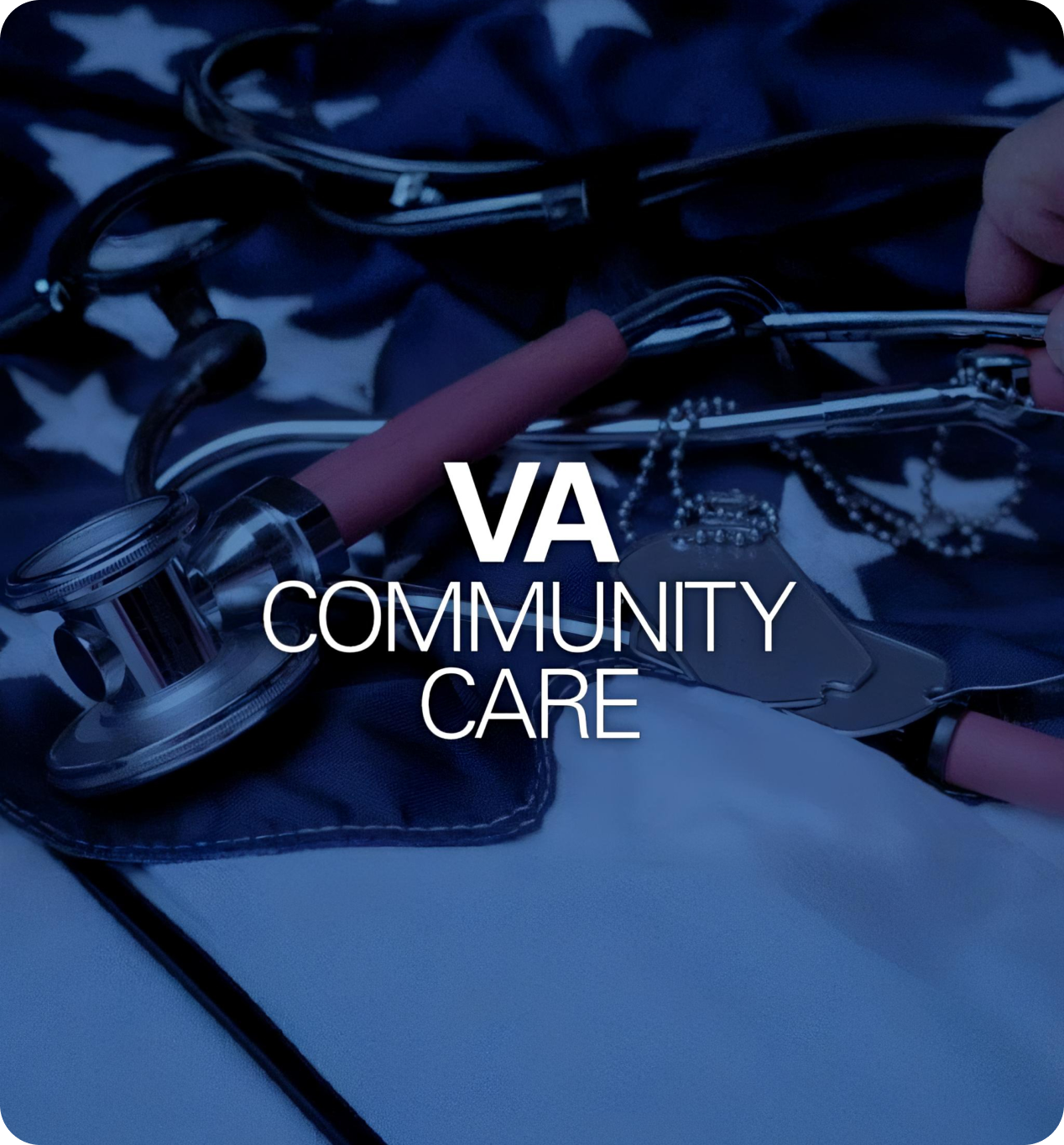Join
The VA Community Care Network
A Guide for Anger Management Specialists
In California, independent Physician Assistants (PAs) can bill the Department of Veterans Affairs (VA) for services provided to veterans, but it’s essential to understand the regulations surrounding this process.
Welcome to Veterans Desk, your trusted resource for connecting healthcare professionals with opportunities to serve our nation’s veterans. This guide is tailored for clinicians who specialize in anger management therapy, including psychologists, licensed clinical social workers, counselors, and behavioral therapists. If you provide interventions focused on emotional regulation, this page outlines everything you need to join the VA Community Care Network (CCN).

Step-by-Step Enrollment in the VA CCN
Verify Your Credentials
- Maintain an active state license in your clinical field (e.g., LCSW, LMFT, LPC, PhD, PsyD).
- Demonstrate experience in anger management, trauma-informed care, or related behavioral therapy.
Prepare Required Documents
- Valid state license in your behavioral health profession
- Signed W-9 for reimbursement
- Professional CV or resume.
- Proof of malpractice insurance
- Documentation of continuing education (CEUs) in anger management, emotional regulation, or trauma-focused therapies
Submit Your Application
Submit your application through the appropriate CCN portal:
Complete Required VA Training
Required courses may include:
- HIPAA compliance and privacy regulations
- Veteran-centered care practices
- Trauma-informed care protocols
Access trainings via the VHA TRAIN portal
Credentialing & Practice Review
- VA and its administrators will verify your licensure, background, and CEU history.
- Your practice may undergo a review for clinical readiness and accessibility standards.
Finalize Your Provider Contract
- Upon approval, you will receive a provider agreement that outlines reimbursement rates and service requirements.
- Once signed, you may begin receiving veteran referrals for anger management services.

Why Anger Management Specialists Matter to Veterans
Many veterans return from service with PTSD, traumatic brain injuries (TBI), and chronic stress, which can lead to persistent struggles with anger and emotional regulation. Without treatment, these challenges may impact relationships, employment, housing stability, and reintegration into civilian life.
As an anger management specialist, your role in the VA CCN includes:
- Providing one-on-one or group therapy for veterans struggling with aggression or emotional dysregulation.
- Delivering evidence-based interventions such as Cognitive Behavioral Therapy (CBT), Dialectical Behavior Therapy (DBT), or stress inoculation training.
- Supporting integrated mental health care with VA psychologists, psychiatrists, and PTSD treatment teams.
- Offering services in both in-person and telehealth formats to reach underserved veteran populations.
Participating in veteran reintegration and wellness programs aimed at long-term resilience.


Key Benefits of Joining the VA CCN
- Serve a High-Need Population: Help veterans develop healthier emotional responses, reduce conflict, and improve daily functioning.
- Collaborative Mental Health Environment: Work alongside trauma therapists, substance use counselors, and social workers in a multidisciplinary setting.
- Reimbursement for Group and Individual Therapy: Receive payment for evidence-based sessions focused on anger management, including group formats.
- Telehealth Opportunities: Provide accessible care to rural or homebound veterans using VA-supported virtual platforms.
- Ongoing Professional Development: Access VA training, research, and continuing education in trauma-informed and veteran-centered care.

Bridging the Gap for Veterans

Clinical Support & Career Development
- Participate in VA-supported workshops focused on trauma, emotional regulation, or behavioral therapy modalities.
- Explore telehealth partnerships with VA clinics in rural or underserved regions.
- Providers may be eligible for student loan repayment or VA Continuing Medical Education (CME) funding.
- Collaborate with PTSD clinics, substance use recovery teams, and family therapy programs for whole-person care.

Transitioning from Military Service
- Military mental health professionals can transition their credentials to civilian practice through recognized pathways.
- Highlight any deployment-related experience treating service members or working in anger and emotional regulation programs.
- Veterans are encouraged to apply as the VA prioritizes Veteran-Owned Small Businesses (VOSBs) and Service-Disabled Veteran-Owned Small Businesses (SDVOSBs).
Frequently Asked Questions (FAQs)
Can I offer anger management services via telehealth?
Yes. Telehealth is supported and encouraged, especially for veterans in rural or underserved areas. Be sure to note this capability in your application.
Are group anger management sessions reimbursable?
Yes, group sessions focused on emotional regulation, conflict resolution, or related topics are reimbursed when properly authorized by the VA or CCN administrator.
Can I treat co-occurring conditions like PTSD or substance use?
Yes, if you are licensed and qualified to do so. Collaborative treatment with other VA providers is encouraged to ensure comprehensive care.

